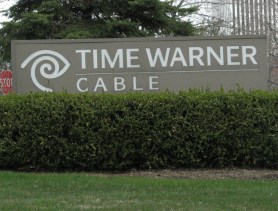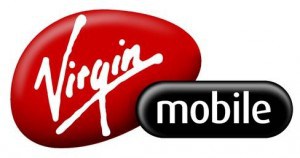 Stop the Cap! comments: After today’s confirmation of the story below, it turns out that not only will Charter enforce its usage caps, it is also implementing a throttling scheme that will turn down speeds for “heavy users” when Charter’s overburdened broadband network is congested. We’ve seen how that works in Europe. Network management techniques like throttling and usage caps allow providers to turn up the speed and usage controls and turn down the level of investment to grow their broadband networks to meet growing customer demand.
Stop the Cap! comments: After today’s confirmation of the story below, it turns out that not only will Charter enforce its usage caps, it is also implementing a throttling scheme that will turn down speeds for “heavy users” when Charter’s overburdened broadband network is congested. We’ve seen how that works in Europe. Network management techniques like throttling and usage caps allow providers to turn up the speed and usage controls and turn down the level of investment to grow their broadband networks to meet growing customer demand.
Wall Street will certainly encourage this kind of behavior so long as Charter customers have few alternative choices. This is bad news for Charter customers who may find the phone company’s unthrottled and typically unlimited broadband a much better alternative, even if it does run slower.
Two separate e-mails arrived in our mailbox this evening from individuals claiming to work for Charter’s call center informing us customer service agents are required to attend a meeting Thursday to explain Charter Cable’s new hard-usage cap Internet Overcharging policy.
It’s too late for us to touch base with company officials for verification, but both our sources shared nearly-identical details of the forthcoming hard usage cap program:
“Effective Nov. 16th, Charter will begin enforcing their Usage Cap policy strictly:
- Base Service: 100GB per month
- Plus & Max: 250GB per month
- Ultra: 500GB per month
Violators will receive two warnings and then face service suspension for up to six months unless they switch to a Business Class broadband product.”
Our other source tells us CSR’s are being trained to deal with irate customers who are deemed violators, all because Charter is in no financial position to keep up with network demands.
Until we receive absolute verification, this should be considered unconfirmed information.
Charter Cable has maintained soft usage caps for some time, rarely enforced on a system-by-system basis with phone calls. The details are buried on Charter’s website. They have generally left most customers alone. But if Charter intends to enforce a formal Internet Overcharging scheme, customers will have just one more reason to despise the company, which already rates as the worst cable broadband provider in the United States according to Consumer Reports (only Wildblue and HughesNet — both satellite fraudband providers scored worse for broadband).
Updated 3:04pm ET: Here is a statement we received from Charter regarding this matter:
Charter is introducing some new programs designed to improve our high-speed Internet service. We had planned to send information your way when we start to inform our customers directly; however, in the spirit of flexibility here is a quick summary for you today.
As I know that you know, Charter has long offered graduated tiers of Internet service, ranging from lower speed “Lite” (1 Mbps) versions to “Ultra60” (60 Mbps) and each service level has a monthly usage threshold within which customers are supposed to limit their usage. Until this point, we haven’t taken action to enforce our thresholds; however, in order to continue providing the highest quality Internet service, we do plan to begin enforcing our “No Excessive Use of Bandwidth” policy documented in our Acceptable Use Policy (AUP). The thresholds are substantially above typical use for approximately 98% of our customers.
In December, we will begin reaching out to a select group of customers whose use is excessive to make them aware of their usage patterns, to help identify possible causes (e.g., unsecured wireless routers or viruses) and review security options with these customers to reduce the risk of unauthorized Internet use. We are currently working on a way to present data usage to customers so they can self-monitor their bandwidth usage. Until we make that tool available directly, customers who are notified of excessive use will be provided a contact at Charter who can check the customer’s usage throughout the month to help them better manage their Internet usage. If the excessive usage continues repeatedly, their Internet service could be suspended. Our intent is to prevent the very small number of users who are consuming excessive amounts of bandwidth from negatively impacting the experience for the majority of our customers.
In tandem with enforcing our “Excessive Use of Bandwidth” policy, we will also introduce a congestion management policy to improve the Internet experience for all of our customers. Congestion Management will become part of our standard Network Management practices, and the policy will be protocol agnostic, which doesn’t distinguish among the online activities, protocols or applications a customer uses. It applies only during periods of congestion (which we find to be relatively rare). It affects only the heaviest users (less than 1%) in small time increments, who will have their bandwidth limited during times of congestion, however, no Internet activities will be blocked. We based this system on the “fair share” model described to the FCC in September of 2008.
We certainly wanted you to know about these initiatives and believe these steps will help us deliver the best possible Internet experience for our residential users.
Anita Lamont
[Updated 12:14pm ET: We reached out to Charter Cable’s social media reps and media relations in e-mail this morning and are still waiting for a confirmation/denial/comment on this story. If/when we get one, it will appear here as an update.]


 Subscribe
Subscribe





